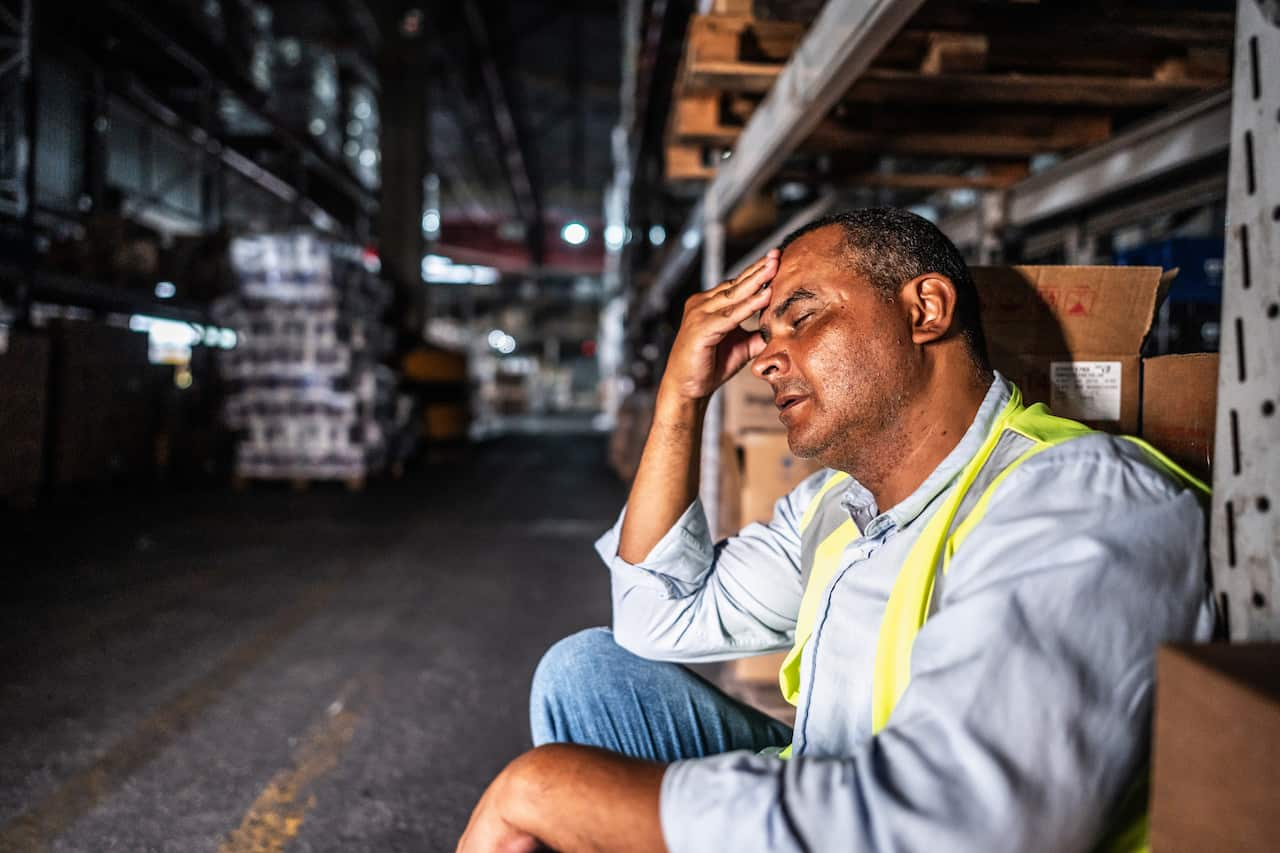Share this @internewscast.com
But what if your symptoms are mild? Is it reason enough to call in sick, or should you push through and work? And what if you’re facing pressure to keep working?
Here’s what to consider.
Are you likely to spread it?
So, whenever possible, avoid going into work when you’re feeling unwell.
Should I work from home?
Some employees join Zoom or Teams meetings out of guilt, not wanting to let their co-workers down.
A downside of powering through is that workers may prolong their illness by not looking after themselves.
Can you take leave when you need it?
There are, for example, 2.6 million casual employees who don’t have access to paid sick leave.

Many workers, such as those in casual employment or self-employed roles, often lack the luxury of choosing whether to take a sick day. Source: Getty / FG Trade
Similarly, most self-employed people, such as tradies and gig workers, do not have any paid leave entitlements.
So a significant proportion of workers in Australia simply cannot afford to call in sick.
Why pushing through isn’t the answer
Pinpointing exact numbers is challenging because most organizations don’t systematically track this, but estimates suggest that 30 to 90 percent of employees work while sick at least once annually.
Research has found industry norms may be shaping the prevalence of ‘involuntary presenteeism’, with workers in the health and education sectors more likely to feel obligated to work when sick due to ‘at work’ caring responsibilities.











